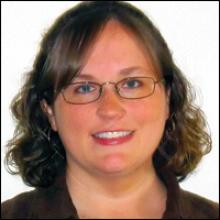LOS ANGELES—Adverse childhood experiences increase the likelihood of chronic insufficient sleep in adulthood, according to data presented at the 70th Annual Meeting of the American Academy of Neurology. This study emphasizes the importance of childhood health and a need to identify psychologic challenges in adults with sleep difficulties, particularly given the established importance of sleep dysregulation for cognitive and physical health, said Kelly Sullivan, PhD, MSPH, Assistant Professor of Epidemiology at Jiann-Ping Hsu College of Public Health at Georgia Southern University in Statesboro, Georgia.
Long-term prospective studies have suggested that adverse childhood experiences such as abuse, neglect, and household challenges (ie, divorced or separated parents, or living with someone who served time in a prison, jail, or other correctional facility) are associated with mental health challenges and unhealthy behaviors (ie, smoking, alcohol or drug use). These experiences have also been associated with conditions such as heart disease, cancer, and stroke.
Analyzing Data From a Nationwide Survey
To assess the association of adverse childhood experiences and subsequent insufficient sleep among a large group of adults in the United States, Dr. Sullivan and colleagues analyzed data from the 2011 Behavioral Risk Factor Surveillance System, a nationwide survey conducted by the Centers for Disease Control and Prevention.
Study participants were age 18 or older, were US residents, and were not incarcerated or institutionalized. For this study, participants completed standardized questionnaires to report childhood experiences of abuse, neglect, household challenges, and sleep time. Researchers calculated the total adverse childhood experiences score by summing the number of different experiences that patients reported, regardless of their severity or frequency.
The sleep questionnaire asked participants to provide an estimate of how many hours of sleep they get in a 24-hour period, not including naps. These questionnaires were categorized based on whether participants reported having optimum sleep (seven to nine hours of sleep per night), or insufficient sleep (less than six hours of sleep per night). Finally, the investigators adjusted for standard demographic covariates (age, sex, race, education and income) and stratified the analysis by decade of age.
Adverse Childhood Experiences Increased Odds of Insufficient Sleep
Data were available for 22,403 adults (mean age, 46.66). In all, 14,587 (65%) study participants reported optimum sleep duration, 2,069 (9%) participants reported insufficient sleep duration, and 216 (1%) participants reported sleep durations of 10 or more hours. The total number of adverse childhood experiences was associated with the odds of insufficient sleep. Each adverse childhood experience increased the odds of insufficient sleep by more than 20%.
The association held for each decade of age through the 60s. The magnitude of this association, however, lessened with age. Participants who were in their 20s at the time of their survey had the strongest association between their adverse experiences and their likelihood of insufficient sleep.
Adults with three or more adverse childhood experiences were twice as likely to report insufficient sleep versus normal sleep duration, as were those with five or more adverse childhood experiences. Long sleep duration was not associated with total adverse childhood experiences.
“Longitudinal studies would help us to have a better idea of the individual impact over the life course,” Dr. Sullivan concluded.
—Erica Tricarico


